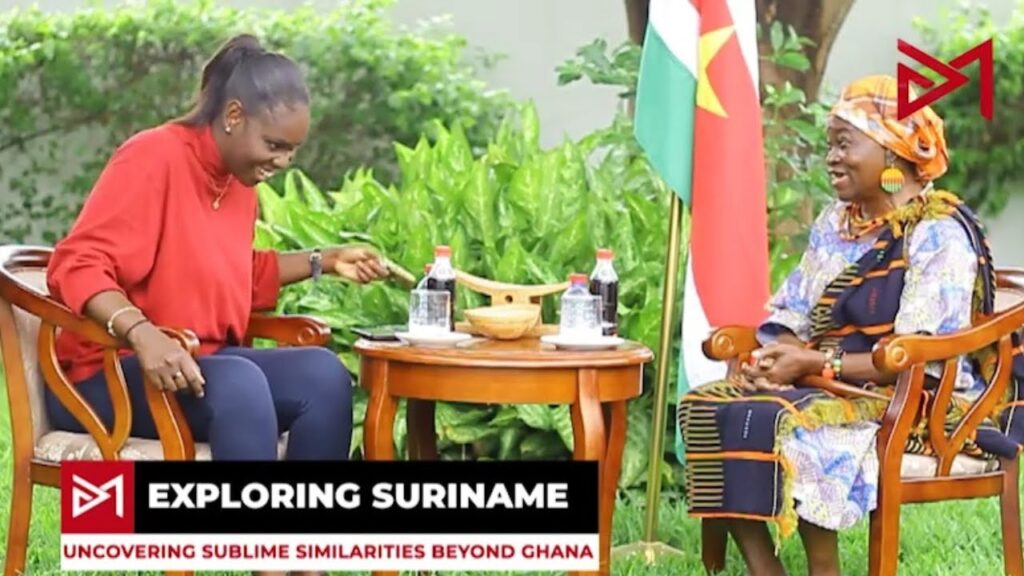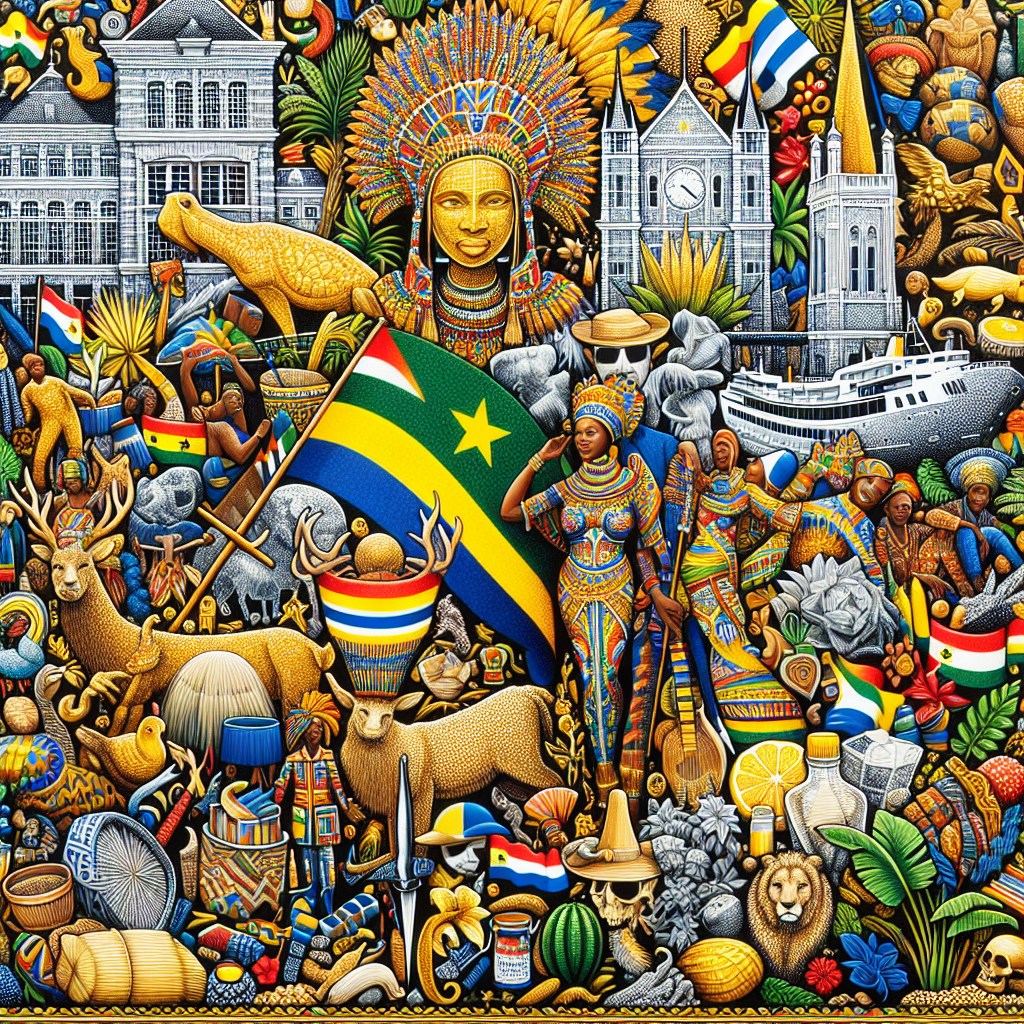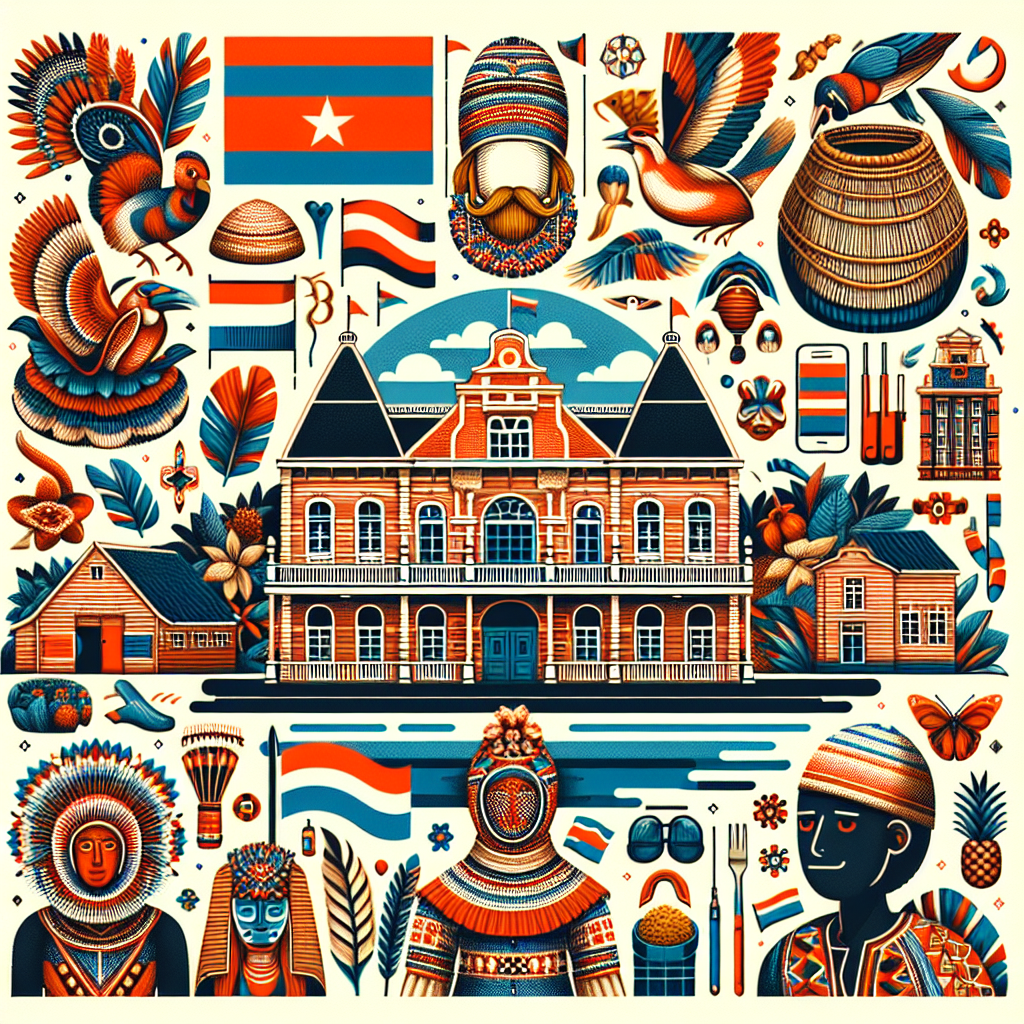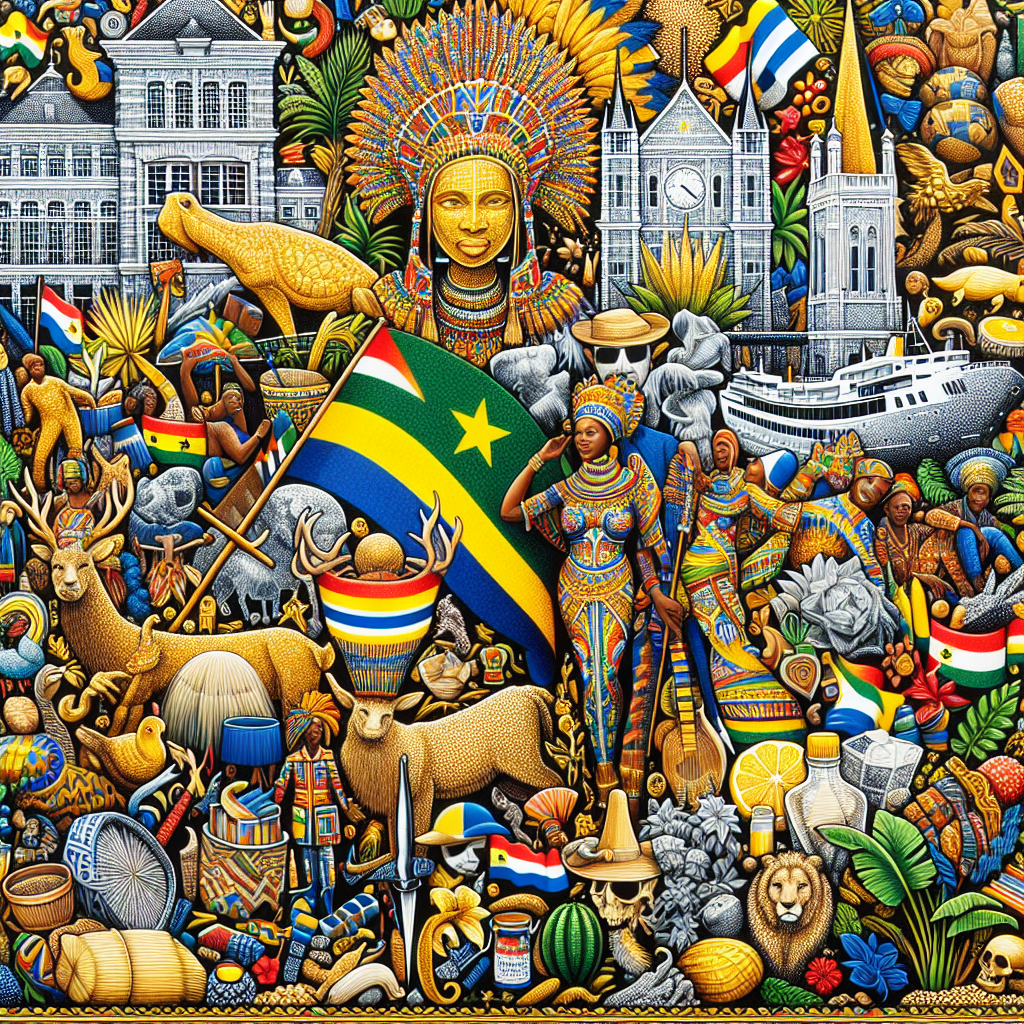The name of the article is “THE SUBLIME SURINAME CULTURE: My Conversation with the Suriname Ambassador to Ghana.” In this article, you will learn about the country of Suriname in South America and its diverse culture and language. The Suriname Ambassador to Ghana shares intriguing stories and discusses the similarities between Suriname and Ghana, including names, languages, and cultural practices. The YouTube video, created by Dela Michel, provides insights into Suriname’s rich cultural heritage. Suriname is the smallest independent country in South America in terms of size and population, and it has a fascinating blend of ethnic diversity, religions, languages, and cultures. Embracing and preserving African identity and culture is of utmost importance, both in Suriname and in the diaspora.
Suriname: A Diverse Culture and Language
Suriname, a country located in South America, boasts a unique and diverse culture and language. This small country shares striking similarities with many African nations, especially Ghana. In this article, we will explore the fascinating insights shared by the Suriname Ambassador to Ghana, Fidelia Talon Grand, and delve into the rich cultural heritage of Suriname.
Best Deals to Surinam by BOOKING.COM
Suriname: Smallest Independent Country in South America
Suriname stands out as the smallest independent country in terms of both size and population in South America. However, despite its small population, Suriname is an ethnically diverse nation. The country is home to a myriad of religions, languages, and cultures. Suriname’s colonial history with the Netherlands has left a lasting impact, with Dutch being the official language of the country.
Ethnic Diversity in Suriname
Suriname’s ethnic diversity is one of its defining characteristics. The population comprises various ethnic groups, including Creoles, Hindustanis, Javanese, Maroons, and Indigenous peoples. Each group contributes to the vibrant cultural tapestry of Suriname, with their unique traditions, languages, and practices.

FIND YOUR BEST HOTEL IN SURINAM WITH BOOKING.COM
Languages, Religions, and Cultures in Suriname
Suriname is a linguistic mosaic, with over 20 languages spoken throughout the country. In addition to Dutch, the official language, Surinamese Creole, Sranan Tongo, and Sarnami are widely spoken. Each language reflects the influence of different ethnic groups and their history.
In terms of religion, Suriname is known for its religious diversity. Christianity, Hinduism, and Islam are the largest religions practiced in the country. Each religion brings its own set of customs, celebrations, and beliefs, contributing to the cultural fabric of Suriname.
Suriname’s Similarities with African Countries
Suriname shares numerous similarities with many African countries, particularly Ghana. The Suriname Ambassador to Ghana, Fidelia Talon Grand, sheds light on these similarities and the fascinating tales that connect Suriname to its African roots.
The ambassador discusses the presence of similar names, languages, and cultural practices between Suriname and Ghana. She highlights the existence of Ashanti names and words in Suriname, drawing on her own family name, Bisato, as an example. The use of these names suggests a connection to specific tribes and a desire to remember African heritage.
The speaker in the video also mentions the significance of names in Suriname and Ghanaian culture. They discuss how names can be meaningful and reflect ancestry, ultimately forming an integral part of one’s identity.

Preservation of African Heritage in Tribal African Communities
The tribal African communities in Suriname have played a vital role in preserving their African heritage. These communities actively maintain their traditions, languages, and cultural practices. The ambassador explains that some of the tribal communities in Suriname fled from slavery, establishing themselves deep in the country’s forests and along its rivers.
These tribal communities have created their own languages, blending African words with the languages of Suriname. Currently, there are six tribal communities living in Suriname, each with their own language and customs. The ambassador emphasizes her fascination with these communities and their ability to recreate aspects of African life in Suriname.
Significance of Names and Words in Surinamese and Ghanaian Culture
During the video conversation, the ambassador and the speaker touch upon the significance of names and words in both Surinamese and Ghanaian culture. They discuss how names not only carry personal meaning but also connect individuals to their heritage. The sharing of names between the two countries serves as a testament to the historical ties that exist.
Furthermore, they explain how certain words hold significance in both Surinamese and Ghanaian culture. For example, they explore the meaning of the word “fish” and how it holds importance in both countries. These discussions highlight the enduring impact of African culture on Suriname and the ways in which language and names can serve as links between cultures.

Embracing African Identity and Culture
The ambassador and speaker emphasize the importance of embracing African identity and culture in Suriname. They discuss the efforts being made by individuals, both in Suriname and in the diaspora, to reconnect with their African roots. These efforts include preserving traditional practices, languages, and celebrations that pay homage to African heritage.
Embracing African identity not only fosters a sense of pride and belonging but also promotes cultural exchange and understanding between Suriname and African countries. It allows for the sharing of traditions and customs, deepening the connection between diverse cultures.
Preservation Efforts in Suriname and the Diaspora
Preserving cultural heritage is of utmost importance in Suriname and the diaspora. The ambassador and the speaker discuss the various initiatives and organizations dedicated to preserving and documenting African culture in Suriname. These efforts include language preservation, cultural festivals, and educational programs focused on African history.
The diaspora also plays a significant role in preserving African heritage. Communities around the world work diligently to maintain their cultural practices and pass them down to younger generations. This ensures that African traditions and values continue to thrive, even outside of Suriname.
Importance of Cultural Heritage in Suriname and Ghana
Both Suriname and Ghana recognize the importance of cultural heritage in shaping their national identities. The Surinamese government actively promotes cultural preservation, encouraging the celebration of diverse cultures and customs. Ghana, too, places great value on its cultural heritage, recognizing it as a source of pride and a means to foster national unity.
Understanding and valuing cultural heritage enables individuals to gain a deeper appreciation for their own identity and the diversity that surrounds them. It fosters a sense of belonging and strengthens social bonds within communities.
Conclusion
Suriname’s diverse culture and language provide a fascinating glimpse into the connections between South America and Africa. The Suriname Ambassador to Ghana offers valuable insights into the rich cultural heritage of Suriname and its ties with African countries, particularly Ghana. Through discussions on names, languages, and cultural practices, we come to appreciate the depth and significance of Suriname’s African roots. Embracing and preserving African identity and culture both in Suriname and in the diaspora allows for a more profound understanding of our shared humanity and the power of cultural exchange.
